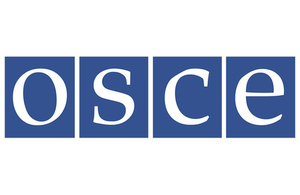UK national statement to the 25th OSCE Ministerial Council
Delivered by Philip Barton, Director General Consular and Security at the Foreign and Commonwealth Office, 6 December 2018, Milan, Italy

OSCE
UK National Statement to the 2018 OSCE Ministerial Council in Milan
Thank you very much Mr Chairman,
I would like to start by thanking Italy as Chair-in-Office, the Secretariat as well as the City of Milan for their hospitality and superb organisation of this Ministerial Council.
Many statements we have heard today have focused on the security challenges that Europe faces. I am going to mention three: threats to sovereignty, threats of confrontation and threats to democracy and fundamental freedoms.
It is deeply frustrating that every year we sit in this Council knowing that we have solutions to these challenges.
-
If every participating State respected the equal right to sovereignty and territorial integrity of others we would have no ‘Crisis in and Around Ukraine’ and no artificially protracted conflicts.
-
If every party to our Confidence and Security Building Measures and Conventional Arms Control instruments implemented these fully in letter and spirit, and agreed to modernise them, we would reduce the risk of misunderstanding and miscalculation.
-
And, if every State implemented fully our OSCE Human Dimension commitments we would enhance not only the wellbeing of our societies, but also security and stability across the region.
The OSCE exists to make us all safe and secure. So, when one State decides that the rules do not apply to them, we all become less safe and less secure.
Russia’s actions in and around Ukraine are contrary to international law. Week after week, OSCE States call upon Russia to end its illegal annexation of Crimea, stop fuelling conflict in the Donbas, and respect Ukraine‘s territorial integrity within its internationally recognised borders. Last week‘s Special Permanent Council showed the strength of international reaction to its actions around the Kerch Straits. We call on Russia to release the 24 detained crew members and to allow the free passage of vessels through those Straits.
Let me take this opportunity to put on record our thanks for the Special Monitoring Mission under the leadership of Ambassador Apakan. They deserve our full support in their difficult mission. They should not face intimidation, restrictions on access, or interference with their equipment.
Mr Chairman, Ukraine is not the only State to have experienced a pattern of Russian hostile behaviour that includes cyber-attacks on international organisations, attempts to distort democratic processes, and massive disinformation campaigns.
This year marked the tenth anniversary of the Russian-Georgian war and the ongoing violation of Georgia’s sovereignty and territorial integrity.
This year, my country also suffered direct consequences from Russia’s disregard for international law and commitments: the reckless use of a deadly nerve agent on the streets of Salisbury.
Two years ago, OSCE Ministers launched a Structured Dialogue to reduce risk and ultimately help rebuild trust. We cannot expect change overnight, but with political will from all participating states, the Dialogue could act as a confidence building measure.
We very much regret the failure to agree a Decision on Risk Reduction here in Milan.
Finally, Mr Chairman, I am proud that for a second year the UK Ambassador has been chairing the Human Dimension Committee. I would like to thank all OSCE Delegations for their active engagement.
70 years on from the adoption of the UniversaI Declaration on Human Rights, let me conclude with a plea to strengthen our Human Dimension, as an essential pillar of our comprehensive security.
Finally, I would like to thank the Italian Chair for their hard work and commitment over the past year and to extend our full support to Slovakia as incoming Chair.
Thank you.